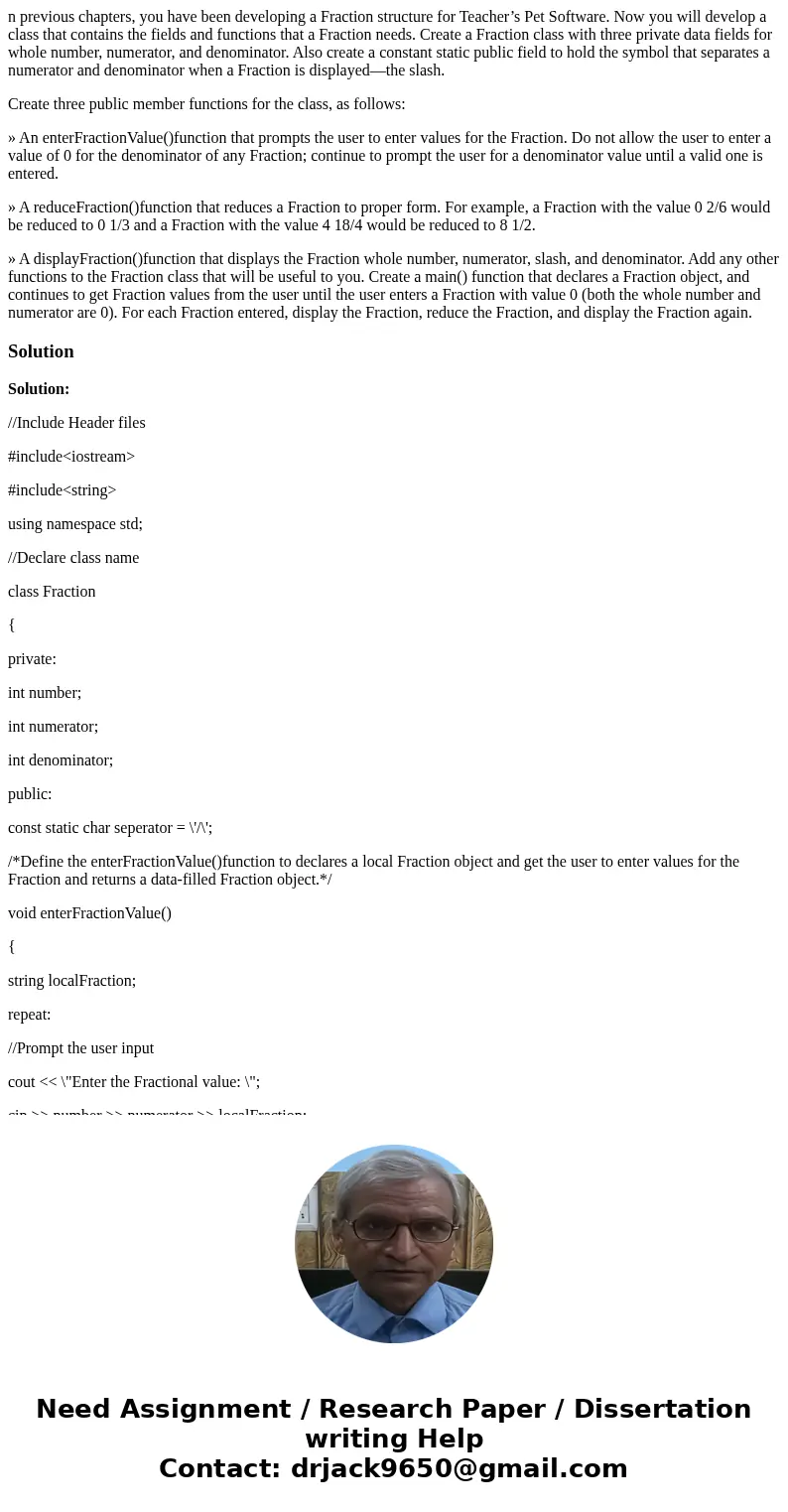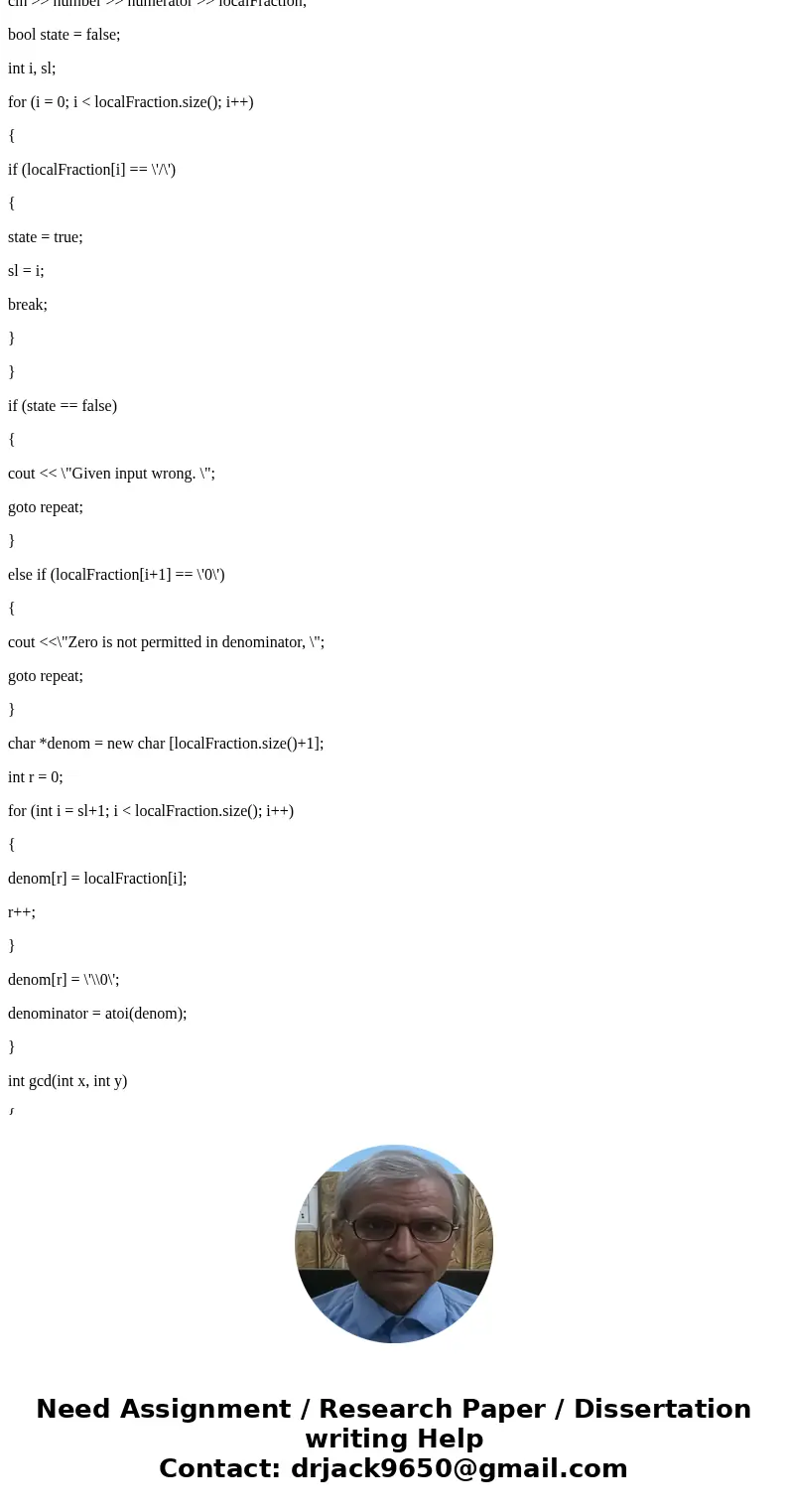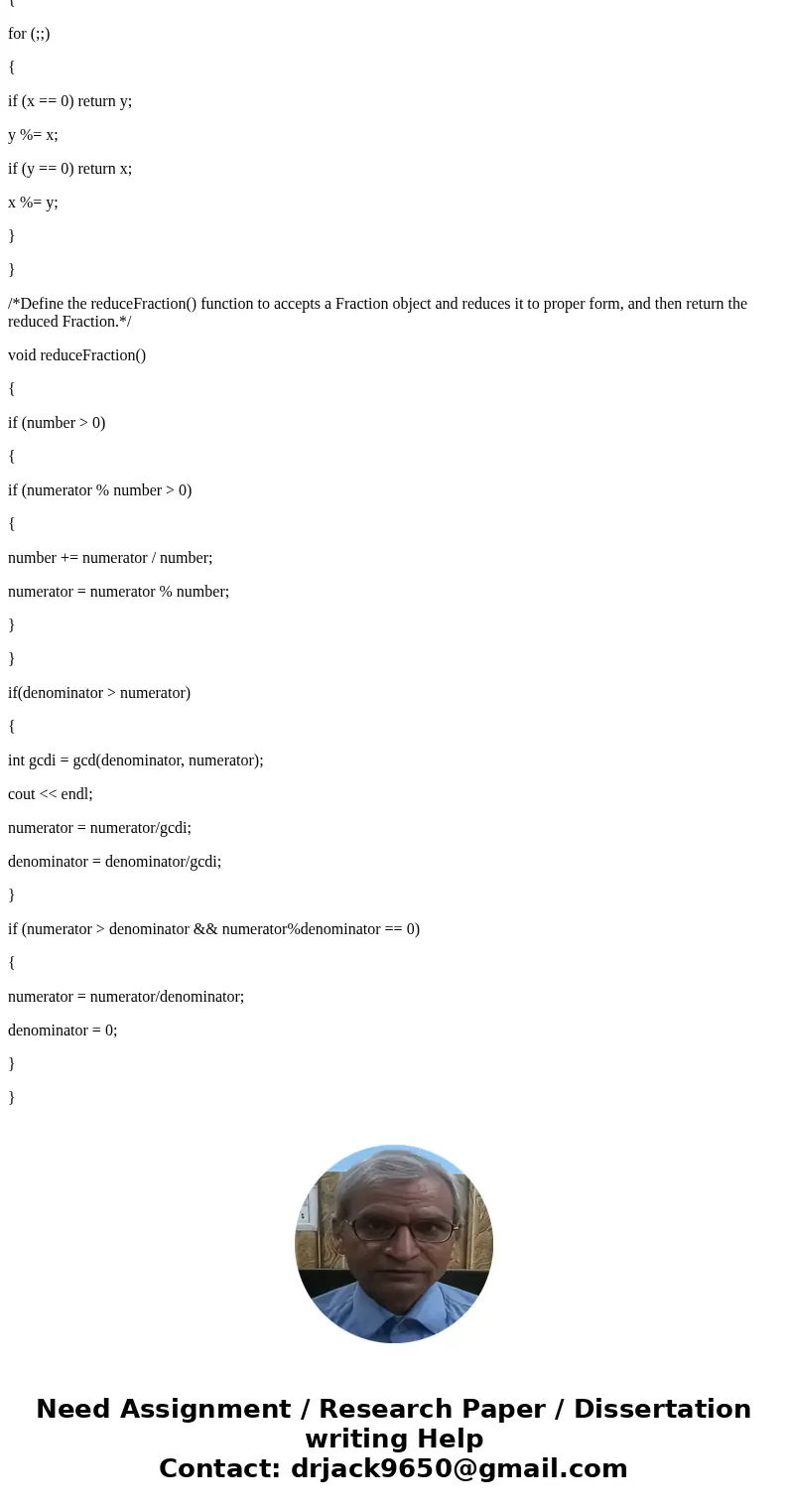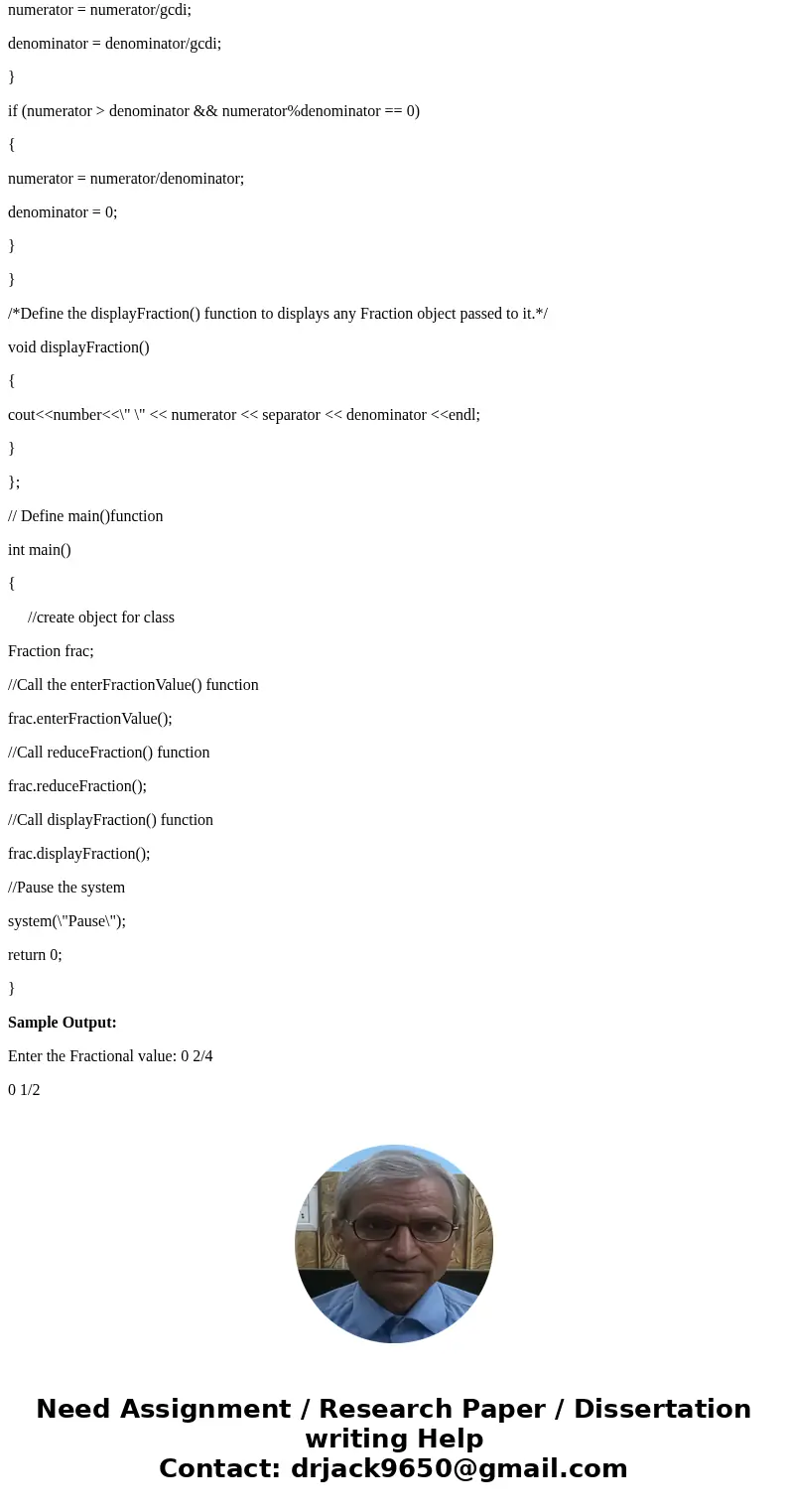n previous chapters you have been developing a Fraction stru
n previous chapters, you have been developing a Fraction structure for Teacher’s Pet Software. Now you will develop a class that contains the fields and functions that a Fraction needs. Create a Fraction class with three private data fields for whole number, numerator, and denominator. Also create a constant static public field to hold the symbol that separates a numerator and denominator when a Fraction is displayed—the slash.
Create three public member functions for the class, as follows:
» An enterFractionValue()function that prompts the user to enter values for the Fraction. Do not allow the user to enter a value of 0 for the denominator of any Fraction; continue to prompt the user for a denominator value until a valid one is entered.
» A reduceFraction()function that reduces a Fraction to proper form. For example, a Fraction with the value 0 2/6 would be reduced to 0 1/3 and a Fraction with the value 4 18/4 would be reduced to 8 1/2.
» A displayFraction()function that displays the Fraction whole number, numerator, slash, and denominator. Add any other functions to the Fraction class that will be useful to you. Create a main() function that declares a Fraction object, and continues to get Fraction values from the user until the user enters a Fraction with value 0 (both the whole number and numerator are 0). For each Fraction entered, display the Fraction, reduce the Fraction, and display the Fraction again.
Solution
Solution:
//Include Header files
#include<iostream>
#include<string>
using namespace std;
//Declare class name
class Fraction
{
private:
int number;
int numerator;
int denominator;
public:
const static char seperator = \'/\';
/*Define the enterFractionValue()function to declares a local Fraction object and get the user to enter values for the Fraction and returns a data-filled Fraction object.*/
void enterFractionValue()
{
string localFraction;
repeat:
//Prompt the user input
cout << \"Enter the Fractional value: \";
cin >> number >> numerator >> localFraction;
bool state = false;
int i, sl;
for (i = 0; i < localFraction.size(); i++)
{
if (localFraction[i] == \'/\')
{
state = true;
sl = i;
break;
}
}
if (state == false)
{
cout << \"Given input wrong. \";
goto repeat;
}
else if (localFraction[i+1] == \'0\')
{
cout <<\"Zero is not permitted in denominator, \";
goto repeat;
}
char *denom = new char [localFraction.size()+1];
int r = 0;
for (int i = sl+1; i < localFraction.size(); i++)
{
denom[r] = localFraction[i];
r++;
}
denom[r] = \'\\0\';
denominator = atoi(denom);
}
int gcd(int x, int y)
{
for (;;)
{
if (x == 0) return y;
y %= x;
if (y == 0) return x;
x %= y;
}
}
/*Define the reduceFraction() function to accepts a Fraction object and reduces it to proper form, and then return the reduced Fraction.*/
void reduceFraction()
{
if (number > 0)
{
if (numerator % number > 0)
{
number += numerator / number;
numerator = numerator % number;
}
}
if(denominator > numerator)
{
int gcdi = gcd(denominator, numerator);
cout << endl;
numerator = numerator/gcdi;
denominator = denominator/gcdi;
}
if (numerator > denominator && numerator%denominator == 0)
{
numerator = numerator/denominator;
denominator = 0;
}
}
/*Define the displayFraction() function to displays any Fraction object passed to it.*/
void displayFraction()
{
cout<<number<<\" \" << numerator << separator << denominator <<endl;
}
};
// Define main()function
int main()
{
//create object for class
Fraction frac;
//Call the enterFractionValue() function
frac.enterFractionValue();
//Call reduceFraction() function
frac.reduceFraction();
//Call displayFraction() function
frac.displayFraction();
//Pause the system
system(\"Pause\");
return 0;
}
Sample Output:
Enter the Fractional value: 0 2/4
0 1/2




 Homework Sourse
Homework Sourse